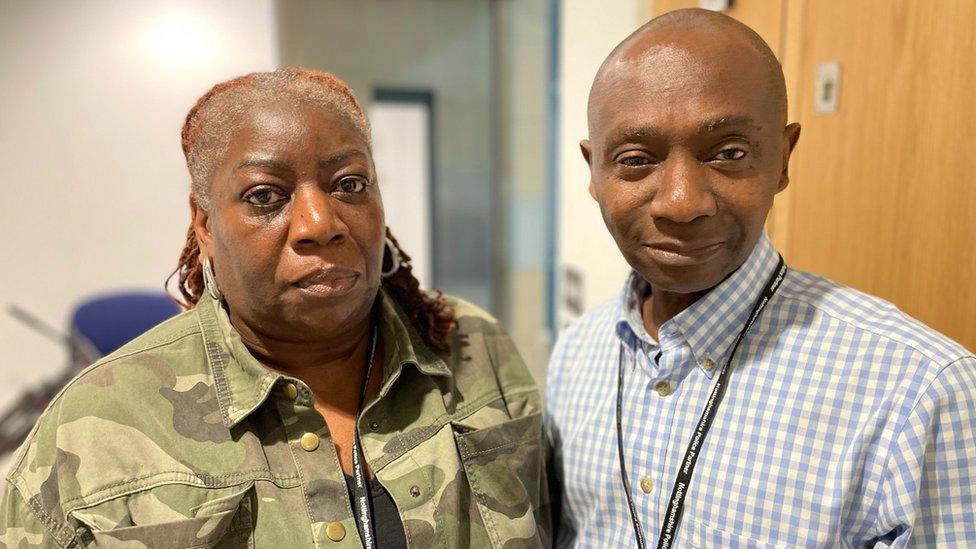Cells aim to 'nudge' offenders away from crime
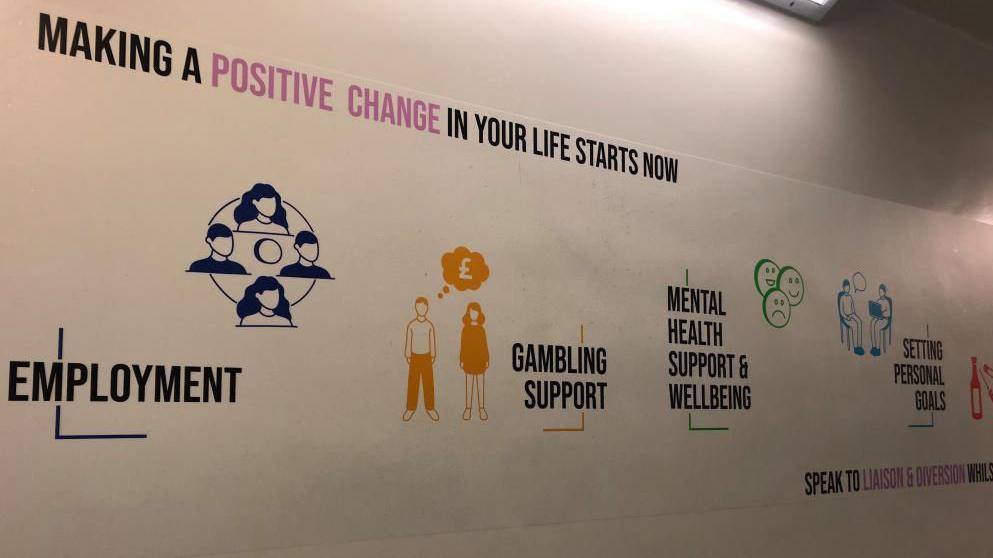
Wall art and screens in cells are part of a "cultural shift" towards detainees
- Published
Wall drawings with messaging and in-cell screens in six police investigation centres (PIC) has seen a significant increase in referrals to support services used to divert offenders away from crime, two forces claim.
Ch Insp Rob Wicks, head of custody for Suffolk and Norfolk police, said in the past they had been "judgemental" of suspects.
He added there had been a "cultural shift" and they were "quite proud of what they did now and the opportunities people who come to custody might have and that's preventing them from returning to custody in future".
This method of behavioural change is known as "nudge theory", external and a Home Office grant of £1m has been used to update the six custody centres.
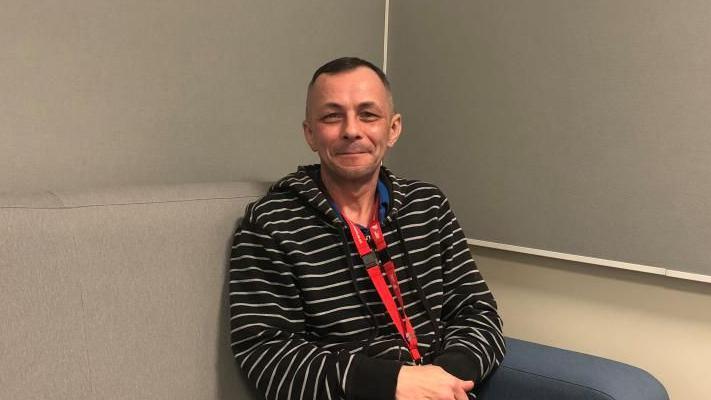
Dr Granville Sutton believes what is happening in custody centres in Suffolk is "really amazing" and is helping to keep offenders from returning
The screen technology in the cells has allowed researchers at the University of Sheffield, external to develop animated films.
They aim to inform detainees of their rights, well being and what services are available to them via the diversion and liaison team.
The Home Office grants also paid for each PIC to convert an interview room into a comfortable and safe space where those teams can take detainees to offer them support in a less formal environment.
The team offers advice on gambling, wellbeing, employment benefits, housing, and recovery services for drug users.
'Gets them thinking'
Turning Point provides the drug recovery service for Suffolk Police.
The charity's Dr Granville Sutton said they had heard from other drugs workers nationally about custody environments where there was not "a great deal happening".
He said "we are really blessed in Suffolk" and custody facilities were "really amazing... screens and signage work".
He explained that people under are often stressed and do not take in what is happening.
The messaging in the cells and on the screens gives detainees something to read or watch and it "gets them thinking", he said.
When they come into the comfortable interview room they see "we are dealing with them in a very different way".
"We're just here to help them improve their health and hopefully never turn up in custody again," he said.
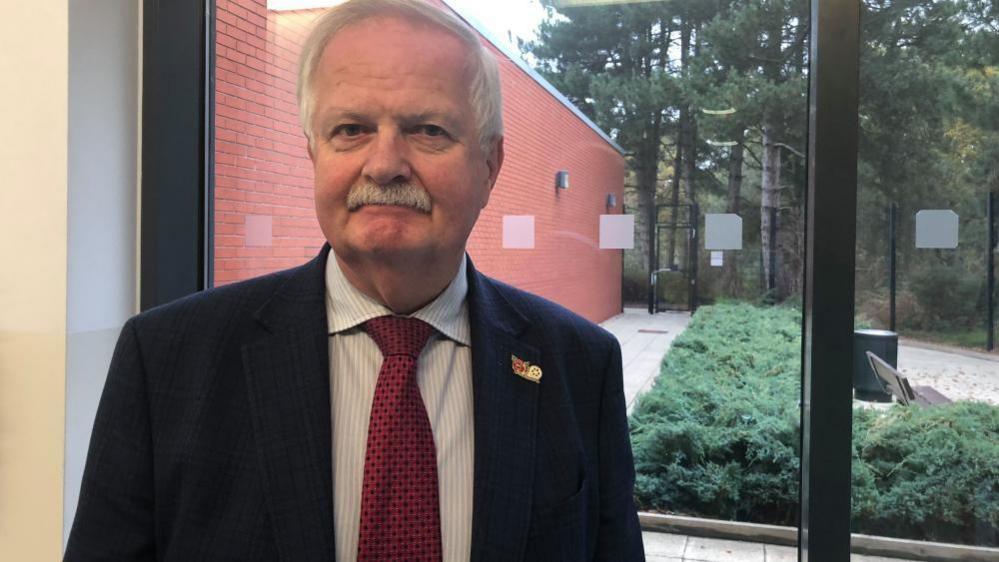
Robin Pivett say the approach is "not soft on crime"
Robin Pivett was a police officer for more than 30 years and switched to being a civilian drugs liaison officer who runs the joint Drug Testing on Demand service for Norfolk and Suffolk police forces.
He has been instrumental in making the changes in custody especially for drug users.
He does not see the approach as "soft on criminals".
"What they are trying to do is identify those who have a serious problem, address their addiction and in the long term keep them healthy, alive and obviously not committing further crime," he said.
Ch Insp Rob Wicks agreed and said: "We deal with the crime separately [but] we are always after giving the best possible service to victims.
"Reducing the number of people reoffending will reduce the number of victims and therefore the impact of crime."
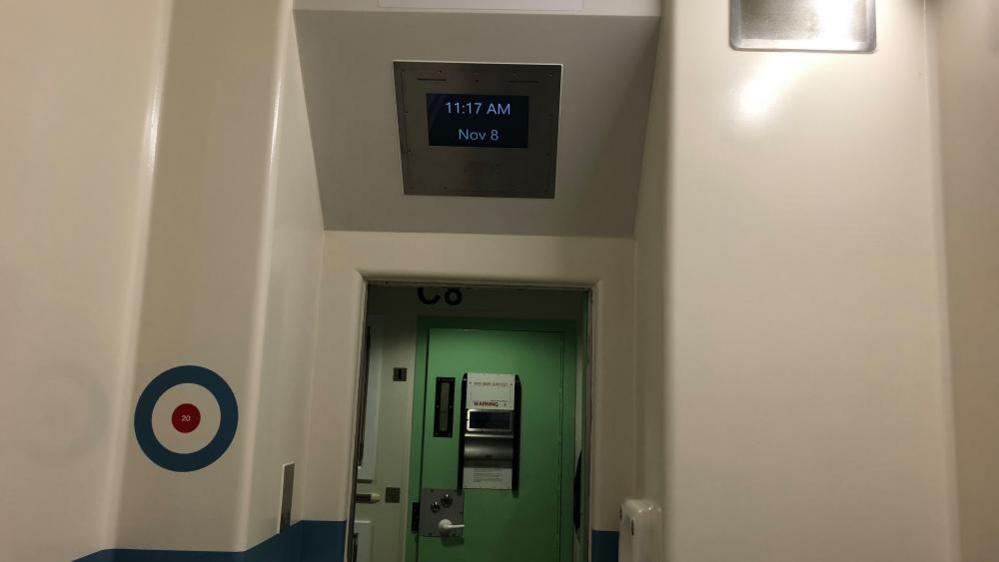
Screens have been added to custody cells through a Home Office grant
According to the Home Office more than 700,000 people, external go through custody centres every year.
The evaluation of the animated films is ongoing and a final report is due next spring.
It will not take into account whether it reduces reoffending rates, just whether detainees take up the diversion and liaison services on offer.
Dr Sutton said the overall impact on reoffending rates was very hard to measure, but what their research did show was "when drug users are in treatment they become healthier and commit less crime".
Get in touch
Do you have a story suggestion for Suffolk?
Follow Suffolk news on BBC Sounds, Facebook, external, Instagram, external and X, external.
Related topics
- Published5 October 2024

- Published19 July 2024
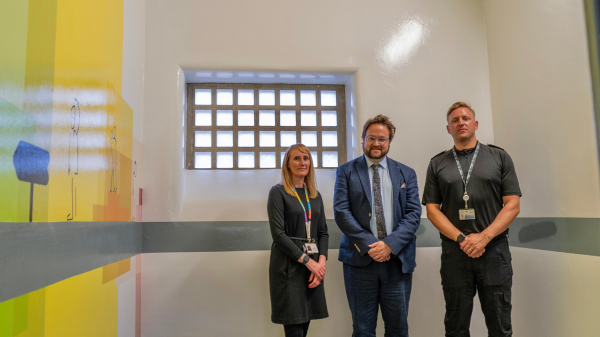
- Published23 May 2024
